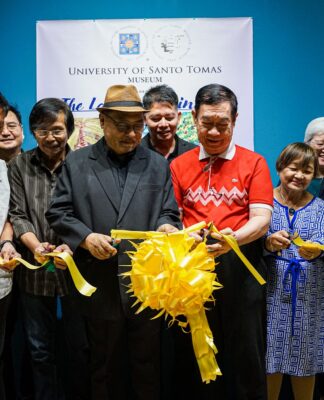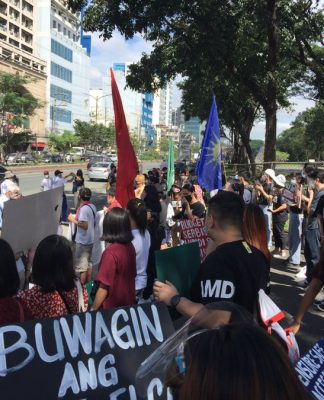WHEN the Philippine Carabao Center announced earlier that it is in the process of developing a “super carabao” that’s more productive in terms of milk yield, a friend and fellow promdi balked and said more attention should instead be given to improving the lot of our farmers.
With due credit to the Center, my friend has a point. Ironically, the Philippines is an agricultural country and yet almost nobody is looking forward to a life on the farm. The prevailing mentality now is to get away from the farmlands and try luck in offices in bustling cities, where supposedly the pastures are greener. I submit that they are, only, the “grass” is made of nylon, polyester, or wool, and is called “carpeting”. It’s not often green, too.
But back to agriculture. Much hullabaloo was caused by the “liberalization” of the world market by the World Trade Organization as a necessary condition for globalization. The clamor is not unfounded. While I don’t argue against globalization, the equality in the global village that the current setup initially promised has not been achieved.
In naively acceding to the GATT-WTO, the Philippines made commitments that have so far proven detrimental to the local economy, going by reports and numbers. The Philippines lowered tariff rates and other barriers on agricultural product imports, making their entry more facile, and cheap. If that weren’t enough, foreign producers are already enjoying big paychecks from their governments for the cost of production (the US, through its US$190B Farm Bill of 2002, increased agricultural subsidies to as much as 50 per cent of the production cost, say analysts).
In short, under the GATT-WTO, the exporters get double benefits, while local producers have to compete with the preposterously low prices of imports. And they’re not necessarily of better quality either. Here lies an exception to the ridicule that we are suckers for imports, half-Filipino or not, because they are perceived to be better (no offense to the basketball scene)—when we talk of agricultural food products, they’re just cheaper, that’s all.
It is elementary to deduce how our farmers suffer. With little or no subsidy from the government, they lower prices of produce to compete, and thus get little or no return of investment. Back home, lasona, the local red onion, goes for 65 pesos a kilo (it’s P70 a kilo here.). Fertilizer and insecticide laments my farmer-neighbor host a lot more.
In a resolution in view of the WTO Ministerial in Hong Kong this December, several party-list representatives allege that instead of creating 500,000 jobs annually in agriculture, the WTO agreements entered into by the country caused agriculture employment numbers to dive from 13.33 million in 1994 to 11.38 million last year. They say the surplus of US$292 million earned from agricultural exports in 1993 became a deficit of US$933 million last year. I don’t know how that happened, but just look at the numbers.
Meanwhile, the Department of Agriculture reports that last year, there was a 16 or so per cent increase in crop yield. But even they admit that the Philippines has become a net importer (meaning, I guess, that we import more than we produce) of agricultural products. The abovementioned resolution is more illustrative: rice imports have allegedly gone up by 540 per cent, and corn, by 520 per cent.
The DA says this can be attributed to the ballooning population. But it can’t be just that. The DA website says the country is 47% agricultural land. That translates into roughly 13 million hectares of the country’s 30 million. The thing is, little or no produce comes from the land. No one wants anything having to do with farming anymore. It has become a worse investment that it already was just a year ago. In the province, farm lands are giving way to factories. And if the government’s image of a developed country is limited only to concrete and asphalt monstrosities, then we, or at least the agriculture sector, is doomed.
Nor is all this the only headache caused by the government’s pretense that it can compete with, say, the US, its sometimes (or oftentimes, you be the judge) misguiding ally. Said Sen. Biazon to the UN General Assembly when it reviewed the UN’s Habitat Agenda in 2001: “Due to reduced earnings of Filipino farmers and limited employment opportunities in the rural areas, the Philippines experienced an exodus of migrants from rural areas to major urban centers.” The result, of course, is overpopulation in cities (hence, our problem in implementing the Habitat Agenda). Then, there’s the tax loss from lowered tariff rates. Again, the abovementioned resolution: “Studies conducted by the National Tax Research Center indicate that on an annual basis, PhP100 billion is lost due to reduced tariffs; PhP32.6 billion to PhP170.8 billion due to fiscal incentives given to investors, subsidies, and tax exemptions; and PhP84.5 due to income tax evasion.”
The figures are overwhelming. Perhaps it is time to restudy the Philippines’ position in this world market setup. And I hope it all gets sorted out. Gusto ko pa naman magsaka. No kidding.
















